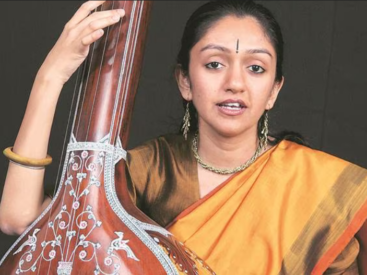Sabiha Hashmi, born on November 8, 1949, belonged to a family deeply rooted in India’s struggle for independence and renowned literary circles. She entered matrimony at the age of twenty and became a mother to two sons, who coincidentally were classmates of my brother and me at Modern School, Vasant Vihar, Delhi. Mrs. Hashmi, an art instructor for middle- and senior-school students, passed away in Bengaluru earlier this month at the age of 72.
My introduction to Sabiha Hashmi occurred in the fourth grade at Modern School, a time when my restless energy and the awareness of my identity as a gay individual brought about a sense of shame. Mrs. Hashmi, recognizing something intriguing in me, generously welcomed me into her classrooms, where she taught students older than myself. It was as if she sensed my internal struggles and feelings of isolation. Mrs. Hashmi, having faced her own challenges as an “other” in various aspects, seized the opportunity to support someone who, like her, felt like an outsider. I needed an anchor, a role model, and a haven for expressing internal fears through art.

During my teenage years, Mrs. Hashmi shared stories of her family’s transition from comfort to abject poverty during the Partition, illustrating the hardships she endured. She also imparted valuable lessons about navigating difficult relationships and making tough choices, emphasizing the importance of resilience in the face of adversity. Despite her seemingly delicate physical stature, she exhibited the courage of a lion.

As I entered Class XI and chose to study the sciences, Mrs. Hashmi encouraged me to pursue graphic arts and screen printing alongside my science courses, a decision considered unconventional at the time. She promised to advocate for my unique gifts, even challenging teachers who might not appreciate my choices. In those final two years of school, Mrs. Hashmi’s art room and the music room became my refuge, and her support allowed me to balance my artistic pursuits with academic responsibilities.
Mrs. Hashmi not only motivated me to overcome physical challenges but also broadened my literary horizons, introducing me to authors like Alexander Pushkin and Fyodor Dostoevsky. Under her guidance, I learned to read and write in Urdu, took Hindi lessons, and explored cultural activities such as plays and gallery openings. Her constructive criticism pushed me to improve, and she played a crucial role in securing a recommendation letter for my admission to Sir J J School of Art in Mumbai.

Upon learning of Mrs. Hashmi’s passing, my mother aptly remarked that I had lost my guru. As the youngest in my family, born into comfort and unity, Mrs. Hashmi opened my eyes to the struggles of others, teaching me to be an advocate for the marginalized. She instilled in me a sense of humanity and empathy, leaving an indelible mark on the lives of many classmates and teachers who now express their admiration for her online. Mrs. Hashmi’s legacy lives on in the stories of our lives, an immortal figure who graced us with unparalleled grace, dignity, and compassionate guidance.



